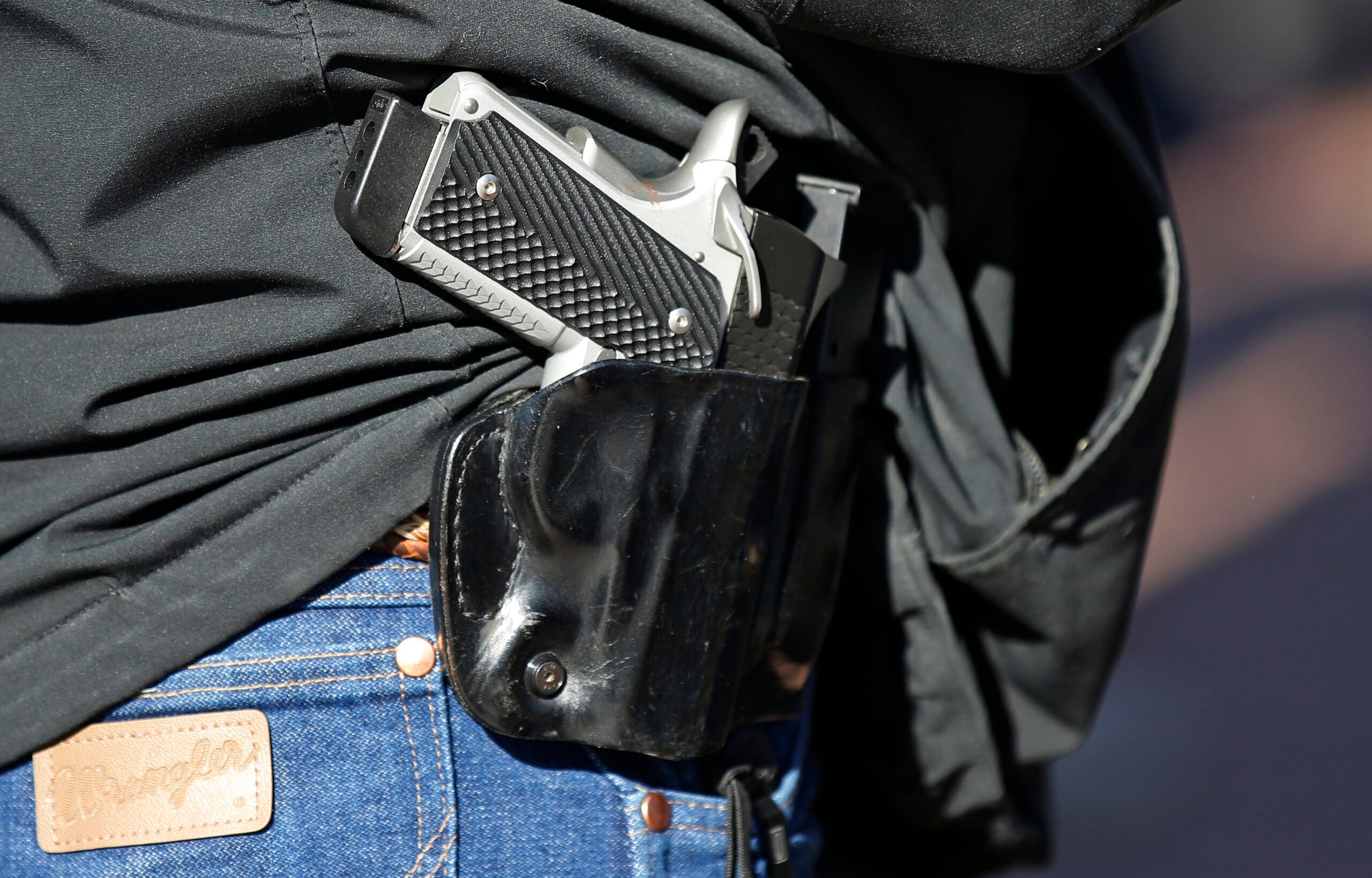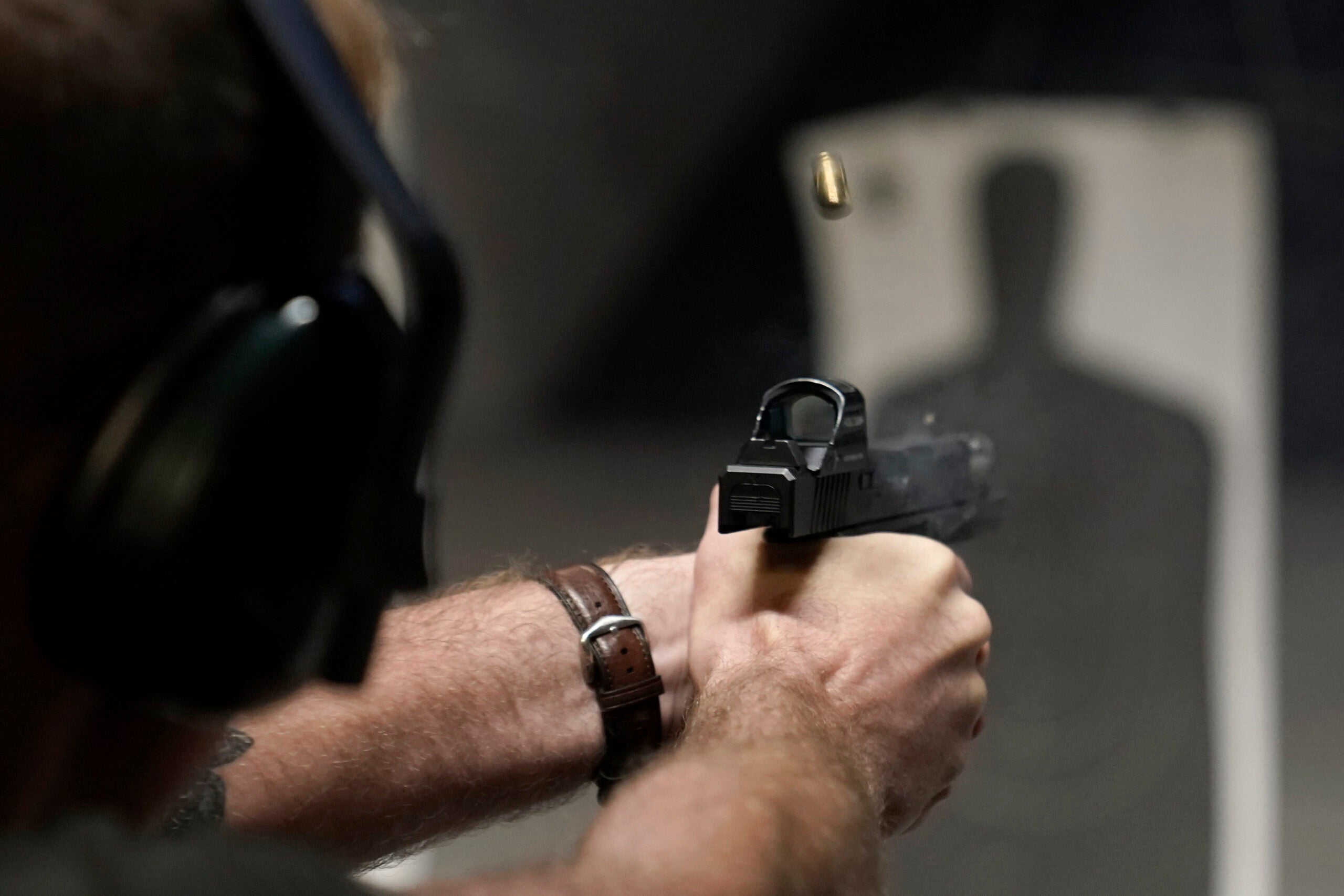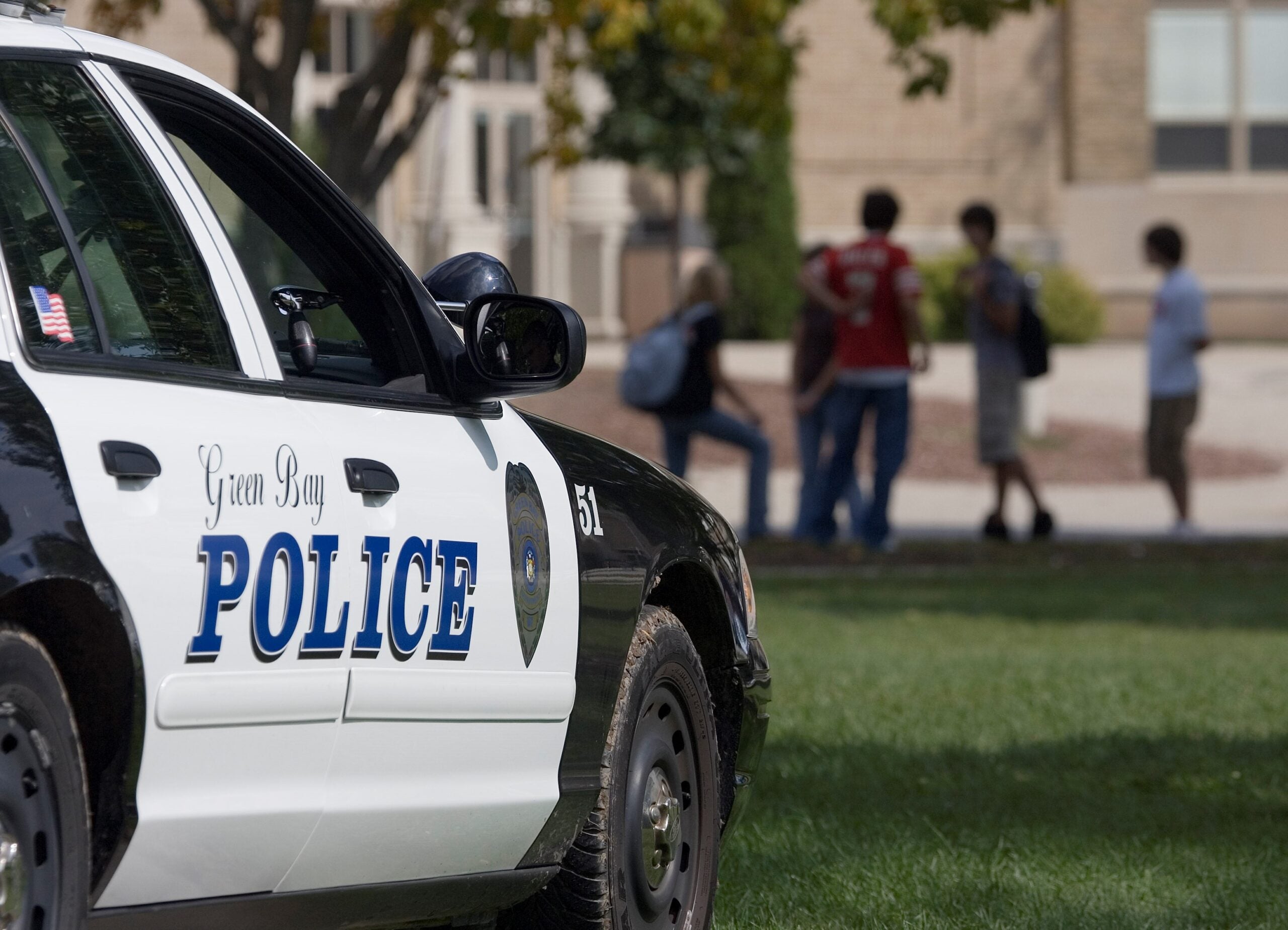State senators heard testimony last week on several Republican-backed bills that would expand the rights of people to carry guns and other weapons.
One of the proposals would create an exception to Wisconsin’s decades-old gun-free school law, by allowing people with concealed carry licenses to have firearms in places of worship that are attached to private schools.
News with a little more humanity
WPR’s “Wisconsin Today” newsletter keeps you connected to the state you love without feeling overwhelmed. No paywall. No agenda. No corporate filter.
Backers of the bill said schools could still choose to ban guns on campus at their discretion. The bill would require the governing body of the place of worship to come up with a written policy related to firearms.
Sponsor Sen. Jesse James, R-Altoona, argued worshippers would be better able to protect themselves if guns are allowed.
“This legislation addresses a crucial gap in our concealed carry law that leaves our churches vulnerable to attacks from those seeking to strike fear into the hearts and minds of everyday Americans,” he said during a public hearing.
A similar bill cleared Wisconsin’s Republican-controlled Legislature last session, but it was vetoed by Democratic Gov. Tony Evers.
“This bill neither improves public safety nor addresses gun violence in our state by allowing for an increased presence of firearms—including loaded firearms—on school grounds,” Evers wrote in his veto message in 2022. “This could only further endanger our kids and make our schools less safe.”
To override a veto, lawmakers need a two-thirds majority in both chambers of the Legislature. Republicans are just two votes short of that supermajority in the state Assembly.
Under the latest version of the bill, guns would only be allowed when “no classes are being held at the private school or the governing body of the place of worship has determined that a special event is occurring at the place of worship,” according to a legislative analysis.
Currently, Wisconsin does not have laws that specifically prohibit guns in places of worship, but state law generally prohibits having guns within 1,000 feet of school grounds.
Lawmakers also heard testimony last week on a bill that would make it easier for people to wield “electric weapons” like Tasers and stun guns, which are designed to immobilize attackers.
Currently, Wisconsin law generally requires people to have concealed carry permits if they take one of those weapons anywhere outside of their home or business.
The bill backed by a group of GOP lawmakers would lift restrictions on stun weapons and Tasers, so that people could carry those weapons without a CCW license.
Rep. Shae Sortwell, R-Two Rivers, told the Senate’s Committee on Judiciary and Public Safety that Wisconsin should make it easier for people to use less lethal methods of defending themselves.
“Not everybody is comfortable with a firearm, and if you’re not comfortable with a firearm, it’s probably not the best tool for you to have,” he said. “But it’s good to have more options, and that’s what this bill does.”
Under the bill, anyone prohibited from having a firearm in Wisconsin would still be banned from carrying stun guns or Tasers.
A third bill considered by the same committee would apply to people who work in tactical emergency medical services, or TEMS, who are trained to provide emergency medical care in crisis situations, such as active shootings or stand-offs.
The plan would let TEMS professionals carry firearms when working in the line of duty in the same places where active law enforcement officers are allowed to have guns. It would apply to areas where guns are otherwise banned, such as courthouses, school zones, jails and places with signs informing people that having a gun on the property amounts to trespassing.
TEMS staff would need to be certified by Wicsonsin’s Law Enforcement StandardsBoard and endorsed by Wisconsin’s Department of Health Services, according to the bill.
Wisconsin Public Radio, © Copyright 2026, Board of Regents of the University of Wisconsin System and Wisconsin Educational Communications Board.





